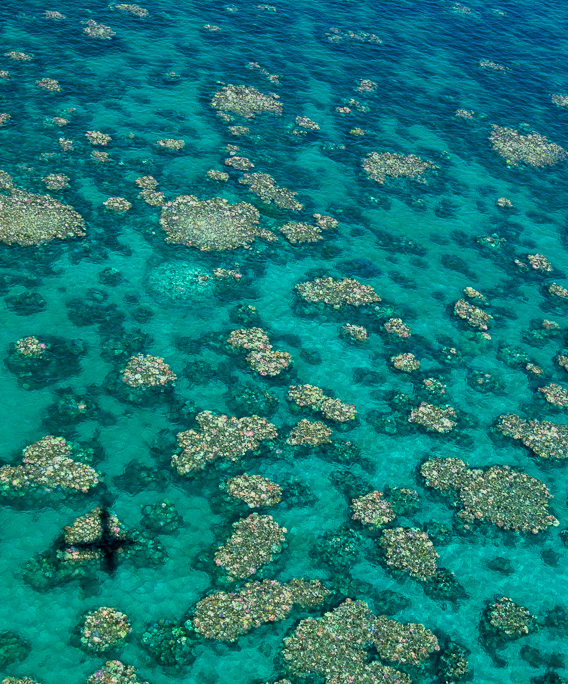Reef bleaching repeats
 Experts have confirmed that the Great Barrier Reef has seen its third bout of coral bleaching in just five years.
Experts have confirmed that the Great Barrier Reef has seen its third bout of coral bleaching in just five years.
Marine scientists surveyed over 1,000 separate reefs from the air during the last two weeks in March, measuring the extent and severity of coral bleaching throughout the Great Barrier Reef system.
The aerial assessments were verified by underwater surveys on reefs, with particular attention paid to how bleaching changes between shallow and deeper reefs.
They found that 25.1 per cent of the reefs surveyed from the air were severely affected by bleaching, meaning that more than 60 per cent of corals were bleached. A further 35 per cent were found to have modest levels of bleaching.
This type of bleaching is usually caused by spikes in sea temperatures during unusually hot summers.
The first mass bleaching event recorded on the Great Barrier Reef was in 1998, which was one of the hottest years on record at the time. Since then, they have occurred in 2002, 2016, 2017, and now again in 2020.
Compared to these four previous bleaching events, 2020 has seen fewer unbleached or lightly bleached reefs, except for 2016.
“The Great Barrier Reef will continue to lose corals from heat stress, until global emissions of greenhouse gasses are reduced to net zero, and sea temperatures stabilise,” James Cook University researchers Dr Terry Hughes and Dr Morgan Pratchett say in a new article for The Conversation.
“Without urgent action to achieve this outcome, it’s clear our coral reefs will not survive business-as-usual emissions.”







 Print
Print